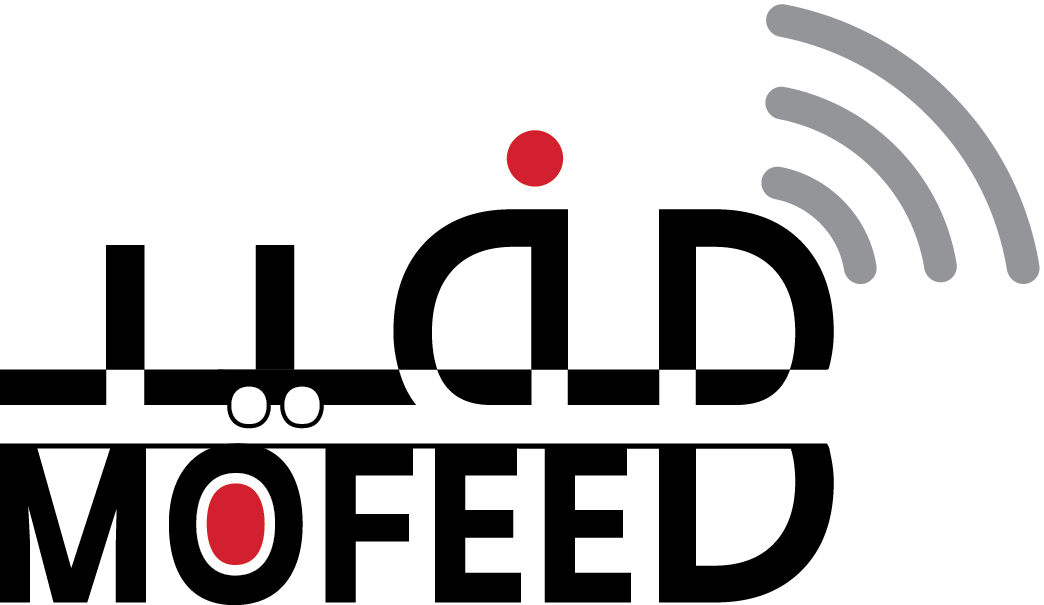
About Mofeed
The Mofeed Project provides researchers with foundational resources for understanding how the politics and societies of the Arab world have adapted in light of the COVID-19 pandemic. Its activities focus on promoting and advancing the production of research investigating the effects of the pandemic on the politics, economies, and societies of the Arab world. The project’s hallmarks are the Mofeed-19 Podcast, the Mofeed Digest, and the Mofeed Archive. Mofeed was launched by the Program on Arab Reform and Democracy at Stanford University’s Center on Democracy, Development and the Rule of Law. It is supported in part by the Open Society Foundation.
Podcast
Archive
Digest
Mofeed-19 is a 19-minute video podcast showcasing and discussing research efforts pertaining to the impact of the COVID-19 pandemic on the Arab world. It is cohosted by Mofeed Project Co-Managers Amr Hamzawy and Hesham Sallam. It is produced in partnership with the Arab Studies Institute.
The Mofeed Archive is a database encompassing all research produced since 2020 on COVID-19 and the Arab world, including academic journal articles, news reports, as well as publications and policy briefs of international organizations, think-tanks, and research centers. The database spans a wide range of subjects, including domestic politics, public health, legal affairs, media, economics, geopolitics, and more.
The Mofeed Digest is a periodic recap of the most important scholarly and policy publications, reports, and articles investigating the impact of the COVID-19 pandemic on the politics, economies, and societies of the Arab world. Mofeed Digest is produced by Mofeed Project Coordinator Serage Amatory.
Our Team

Principal Investigator
Larry Diamond
Larry Diamond is a senior fellow at the Hoover Institution, the Mosbacher Senior Fellow in Global Democracy at the Freeman Spogli Institute for International Studies (FSI), and a Bass University Fellow in Undergraduate Education at Stanford University. He is also professor by courtesy of Political Science and Sociology at Stanford. He leads the Hoover Institution’s programs on China’s Global Sharp Power and on Taiwan in the Indo-Pacific Region. At FSI, he leads the Program on Arab Reform and Democracy, based at the Center on Democracy, Development and the Rule of Law, which he directed for more than six years. He also co-leads with (Eileen Donahoe) the Global Digital Policy Incubator, based at FSI’s Cyber Policy Center. He is the founding coeditor of the Journal of Democracy and also serves as senior consultant at the International Forum for Democratic Studies of the National Endowment for Democracy. His research focuses on democratic trends and conditions around the world and on policies and reforms to defend and advance democracy.

Project Co-Manager
Hesham Sallam
Hesham Sallam is a Research Scholar at CDDRL and serves as the Associate-Director of the Program on Arab Reform and Democracy. He is also a co-editor of Jadaliyya ezine and a former program specialist at the U.S. Institute of Peace. His research focuses on Islamist movements and the politics of economic reform in the Arab World. Sallam’s research has previously received the support of the Social Science Research Council and the U.S. Institute of Peace. Past institutional affiliations include Middle East Institute, Asharq Al-Awsat, and the World Security Institute. Sallam is the author of Classless Politics: Islamist Movements, the Left, and Authoritarian Legacies in Egypt (Columbia University Press, 2022), and editor of Struggles for Political Change in the Arab World (with Lisa Blaydes and Amr Hamzawy) (University of Michigan Press, 2022) and Egypt’s Parliamentary Elections 2011-2012: A Critical Guide to a Changing Political Arena (Tadween Publishing, 2013). Sallam received a Ph.D. in Government (2015) and an M.A. in Arab Studies (2006) from Georgetown University, and a B.A. in Political Science from the University of Pittsburgh (2003).

Project Co-Manager
Amr Hamzawy
Amr Hamzawy studied political science and developmental studies in Cairo, The Hague, and Berlin. He was previously an associate professor of political science at Cairo University and a professor of public policy at the American University in Cairo. Between 2016 and 2017, he served as a senior fellow in the Middle East program and the Democracy and Rule of Law program at the Carnegie Endowment for International Peace, Washington, DC.
His research and teaching interests as well as his academic publications focus on democratization processes in Egypt, tensions between freedom and repression in the Egyptian public space, political movements and civil society in Egypt, contemporary debates in Arab political thought, and human rights and governance in the Arab world. His new book On The Habits of Neoauthoritarianism – Politics in Egypt Between 2013 and 2019 appeared in Arabic in September 2019.
Hamzawy is a former member of the People’s Assembly after being elected in the first Parliamentary elections in Egypt after the January 25, 2011 revolution. He is also a former member of the Egyptian National Council for Human Rights. Hamzawy contributes a weekly op-ed to the All Arab daily al-Quds al-Arabi.

Project Coordinator
Serage Amatory
Serage is pursuing a Master of Arts in Public Policy at Stanford following his earning of a Master of Arts in International Policy in June 2019 from Stanford as well. He currently leads an activist collation and protest-platform named “Rage for Change” in support of the anti-government protest movement in Lebanon where he is also the writer, host and producer of a political commentary show in Lebanon called “C’est Rage“. Prior to Stanford, Serage graduated with a BA in Television & Journalism and a BA in Political Science from the American University in Cairo.



